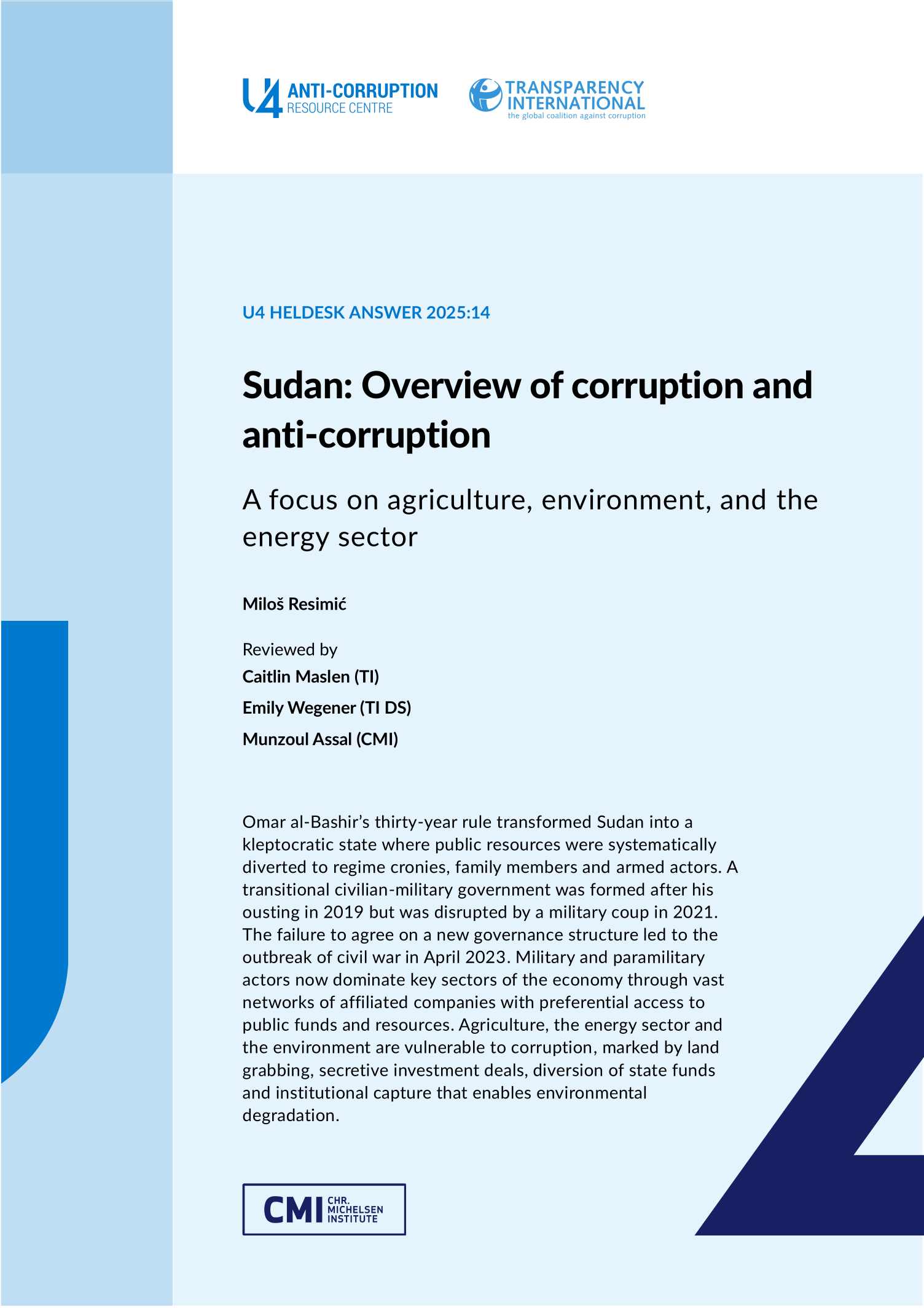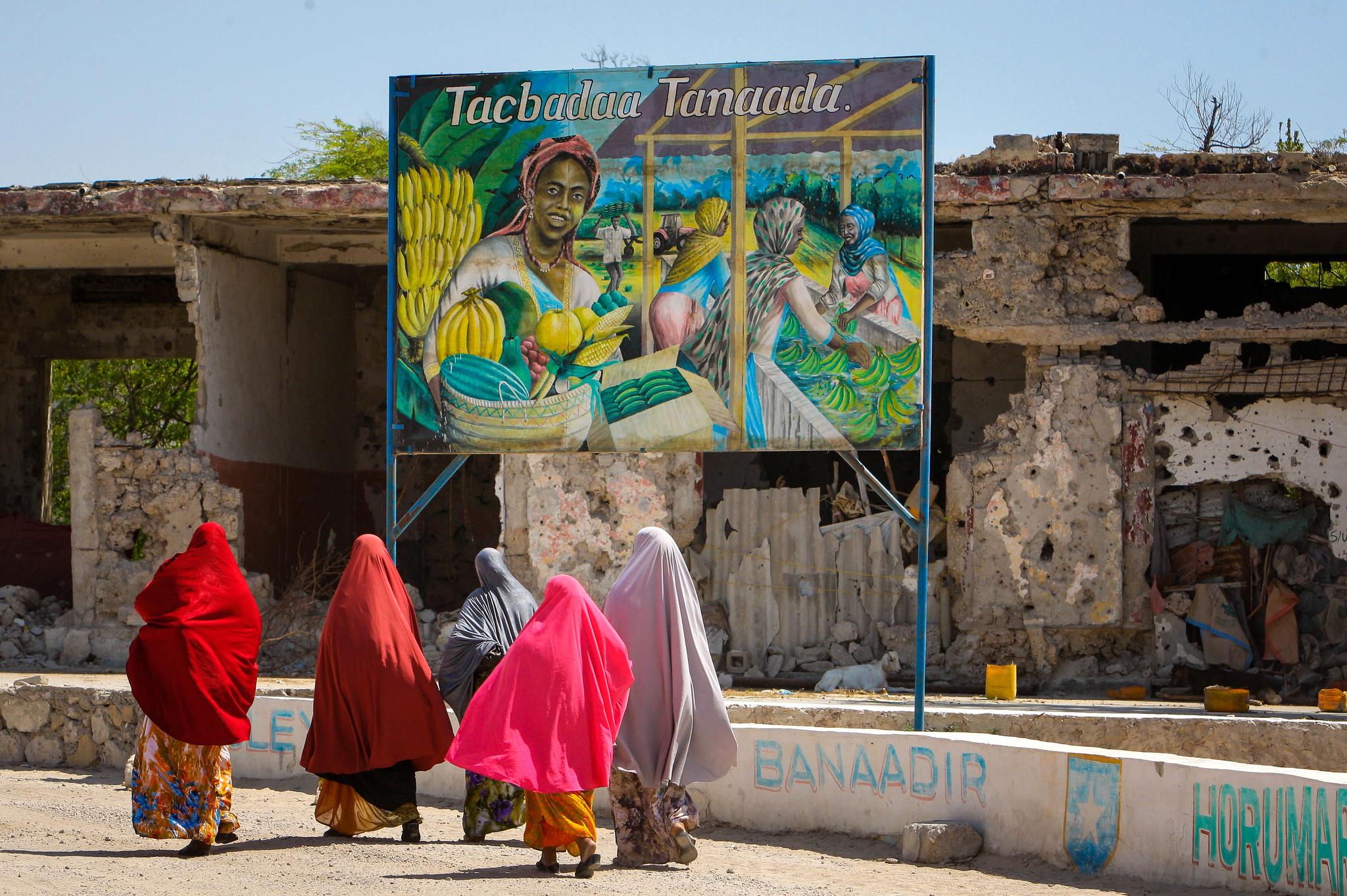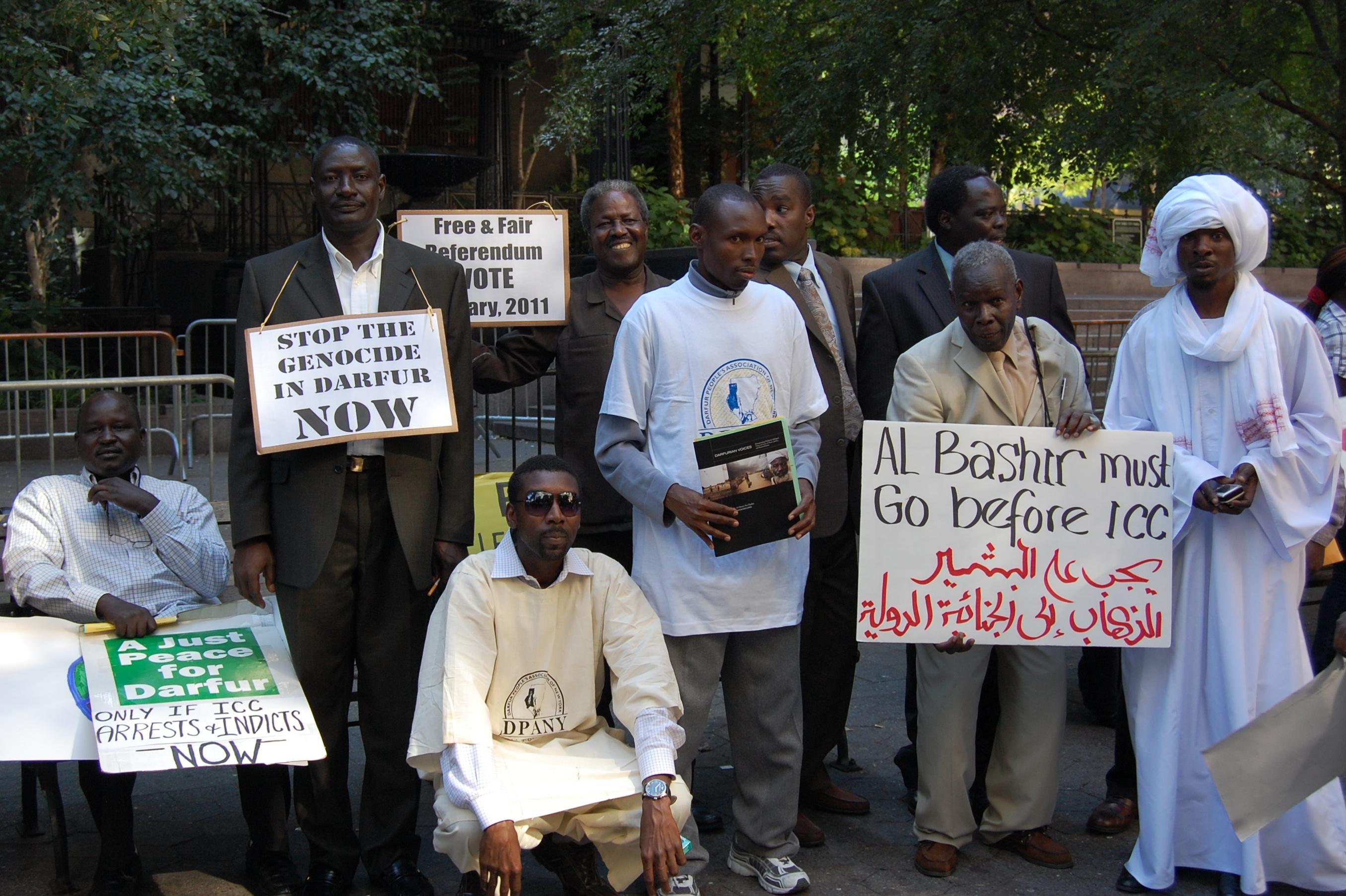Main points
- Following the ousting of Omar al-Bashir in 2019, a transitional civilian-military government was formed.
- After a coup jointly orchestrated by the Sudanese Armed Forces (SAF) and the Rapid Support Forces (RSF) in 2021, and subsequent failures to reach a consensus on the country’s future governance structure, civil war broke out in April 2023.
- The al-Bashir regime was characterised by the systematic diversion of public resources to regime cronies, family members and armed actors. It also relied on tailor-made laws that favoured narrow interests at the expense of the broader public, facilitated by an elaborate network of politically controlled firms.
- Military and paramilitary actors have exerted strong control over Sudan’s most lucrative sectors – such as oil and gold mining – through a vast network of affiliated companies, both before and after the al-Bashir era.
- The agricultural sector is particularly vulnerable to corruption, which manifests in tailor-made laws facilitating land grabbing, secretive land deals with foreign investors, military and paramilitary influence over agricultural value chains, and the diversion of public agricultural funds.
- Large energy-related projects in Sudan have been marked by corruption, primarily due to the reliance on government-connected companies that significantly inflate project costs. In the context of the current civil war, petroleum imports have become another source of corruption, with special privileges granted to SAF-affiliated companies and the RSF imposing transit fees in areas under its control.
- Environmental degradation, including pollution from gold mining and widespread deforestation, is driven by the undue influence of military and politically connected companies on state institutions and regulatory bodies.
- Sustainability initiatives in Sudan face numerous challenges, including political instability, high initial investment costs for renewable energy projects, poor infrastructure development and significant market risks due to the capital-intensive nature of these projects and their extended payback periods.



